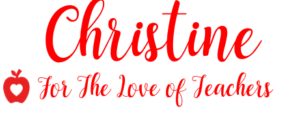 Being able to spend time with students in a classroom is extremely rewarding. It allows you to shape young minds and a front-row seat to watch your students grow, whether they’re young children or teens heading off to college soon.
Being able to spend time with students in a classroom is extremely rewarding. It allows you to shape young minds and a front-row seat to watch your students grow, whether they’re young children or teens heading off to college soon.
But, whether you’ve been teaching for a while and you’re looking for a change or you’re realizing that being in the classroom doesn’t feel like the right fit, don’t fret. There are plenty of opportunities available that will let you utilize your education and experience outside the classroom.
By transitioning to an administrative position in education, you can still help students in a different way, while challenging yourself in a new role that might seem like a better fit at this stage of life.
With that in mind, let’s cover a few helpful tips you can use to make that shift as seamlessly as possible.
Take Stock of Your Skills
Before you decide which education opportunity is right for you, consider a self-assessment. Why do you want to leave the classroom, in the first place? Are you feeling burnt out? Do you feel like you have skills that would serve you, and others, better elsewhere? What are those skills? There are plenty of skill sets most teachers either have or develop that can translate into other areas of the education sector, including:
- Communication skills
- Problem-solving
- Organizational skills
- Adaptability
- Leadership
Focus on your strengths as you decide where you want to turn. Professional development is essential for teachers, so even if you feel like you haven’t honed your skills the way you want to, now is a perfect time to self-reflect, take training courses, or even go back to school before trying something new.
Create a Career Plan
When you first decided to get into education, you undoubtedly developed a career plan for yourself. Maybe you had a professor or guidance counselor help you while you were still in college preparing for the future.
Now, as your career plan shifts, other things that can help you achieve your new goals will also shift. Your career plan should include those goals, as well as a self-assessment, information about your chosen field, skill development, networking, resume building, and adaptability, as well as your long-term vision. You can find templates for career plans online to make the process easier for yourself. But, it’s not something you should complete in just a few minutes.
Take a look at how the industry has changed. How flexible are you willing to be to change with it? Where do you need to grow? Where do you see yourself in five years? While it might seem tedious to answer some of these questions, they’ll get you on the right track to the right position.
Part of a successful career plan is taking a look at your existing resume and determining where you can make changes. Writing a cover letter is a great place to start. It lets potential employers know your background and you can give a brief explanation as to why you’re looking for a change. Some other tips that can help your resume stand out include:
- Creating an “elevator pitch” for yourself
- Being upfront about your accomplishments
- Using industry-specific language
- Acquiring new skills to include on your resume
If a potential employer is interested, your career plan should also include how you plan on preparing for in-person interviews. Talking to an employer in person gives you the chance to let your personality shine. That can make all the difference in getting hired and standing out from the competition. Consider planning for potential interview questions so you can answer with confidence.
Navigate Networking
Maybe you didn’t have to network very much to become a teacher. But, when you’re transitioning into a new career, it helps to know the right people – or to meet them! Networking is a great way to learn more about the jobs you’re interested in and connect with people who can help you reach your goals.
Plus, networking today is easier than ever, thanks to technology. While attending local seminars and networking events can be helpful, it’s often just as effective to network online. As a bonus, you can connect with people all over the globe, not just in your local community.
Consider joining digital forums connected to educators, or join conversations with others in the education sector on LinkedIn. As you start to connect with other professionals, personalize your communication efforts, make your goals clear, and maintain a professional demeanor. It’s okay to ask questions, but be considerate of other people’s time, especially if they’re willing to help you.
It’s never too late to make a career change. If you know you belong in education but want to take advantage of opportunities outside the classroom, keep these tips in mind. By putting them into practice and taking the plunge into something new, you could end up finding the career you’ve always wanted.
 About the Author: Indiana Lee is a journalist with a focus on special needs, child development, and education, aiming to inform and influence positive changes in these areas through her writing. Connect with her on LinkedIn.
About the Author: Indiana Lee is a journalist with a focus on special needs, child development, and education, aiming to inform and influence positive changes in these areas through her writing. Connect with her on LinkedIn.
Thanks for reading!
If you like it, then pin it!

Christine Weis is a passionate educator, classroom management coach, wife, and mom of two busy boys. She enjoys teaching, writing, and creating resources for teachers.






Leave a Reply